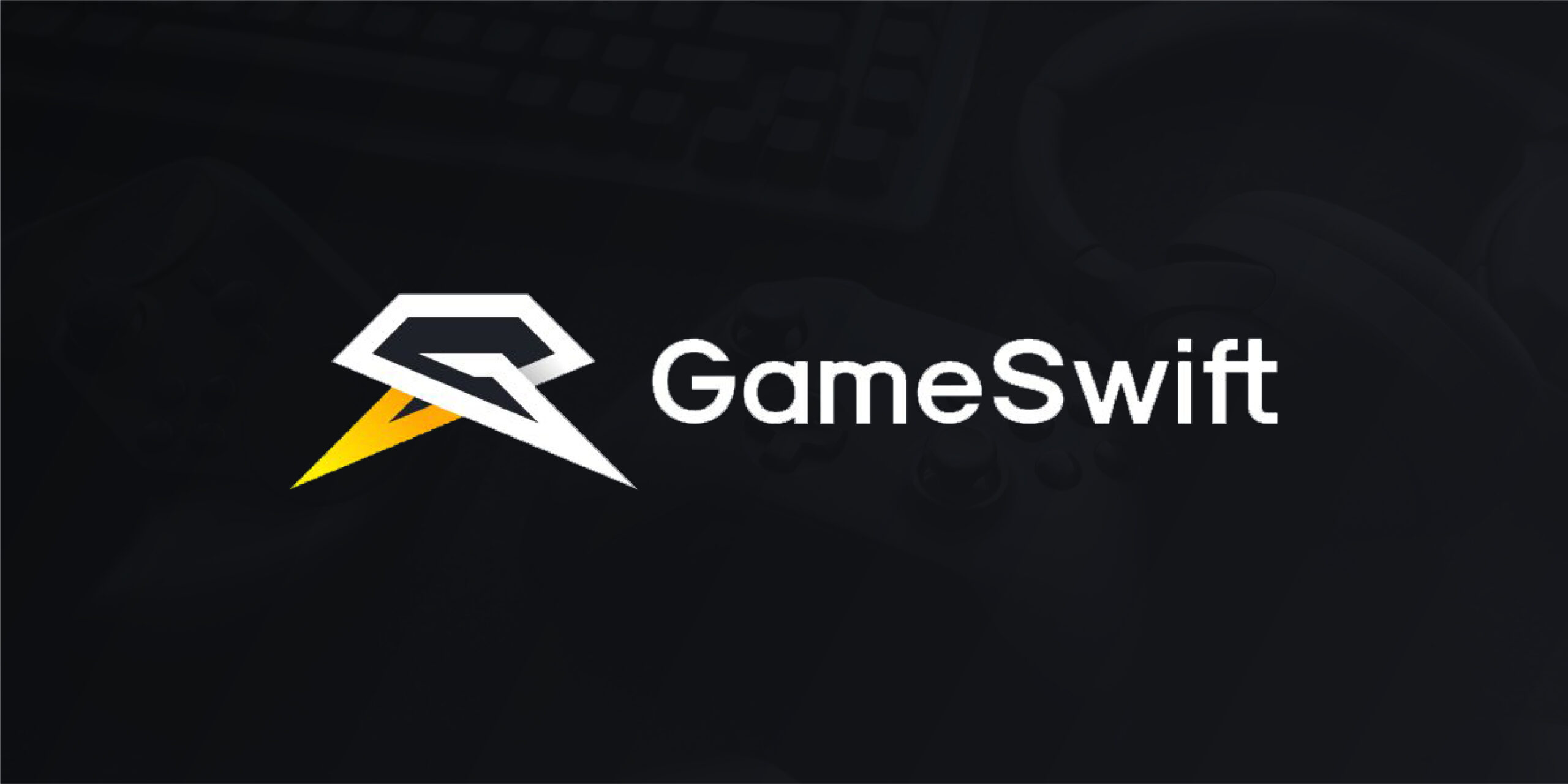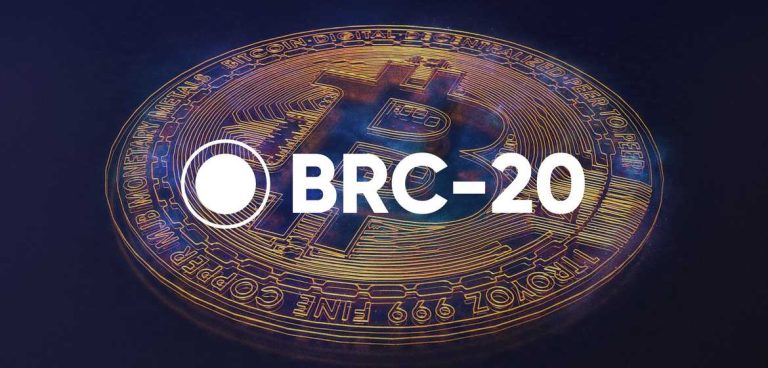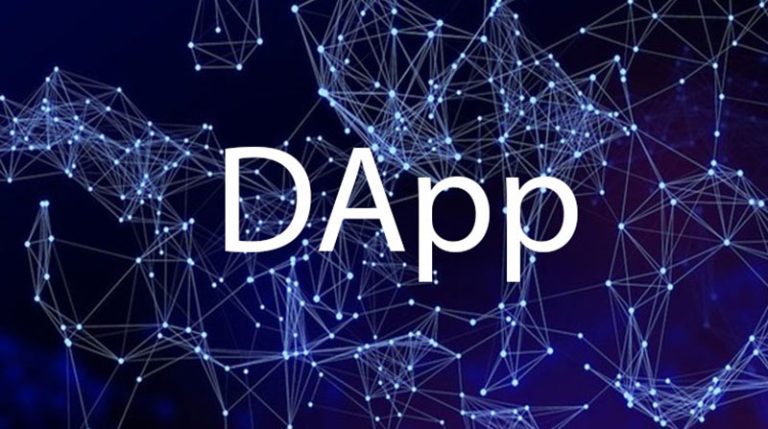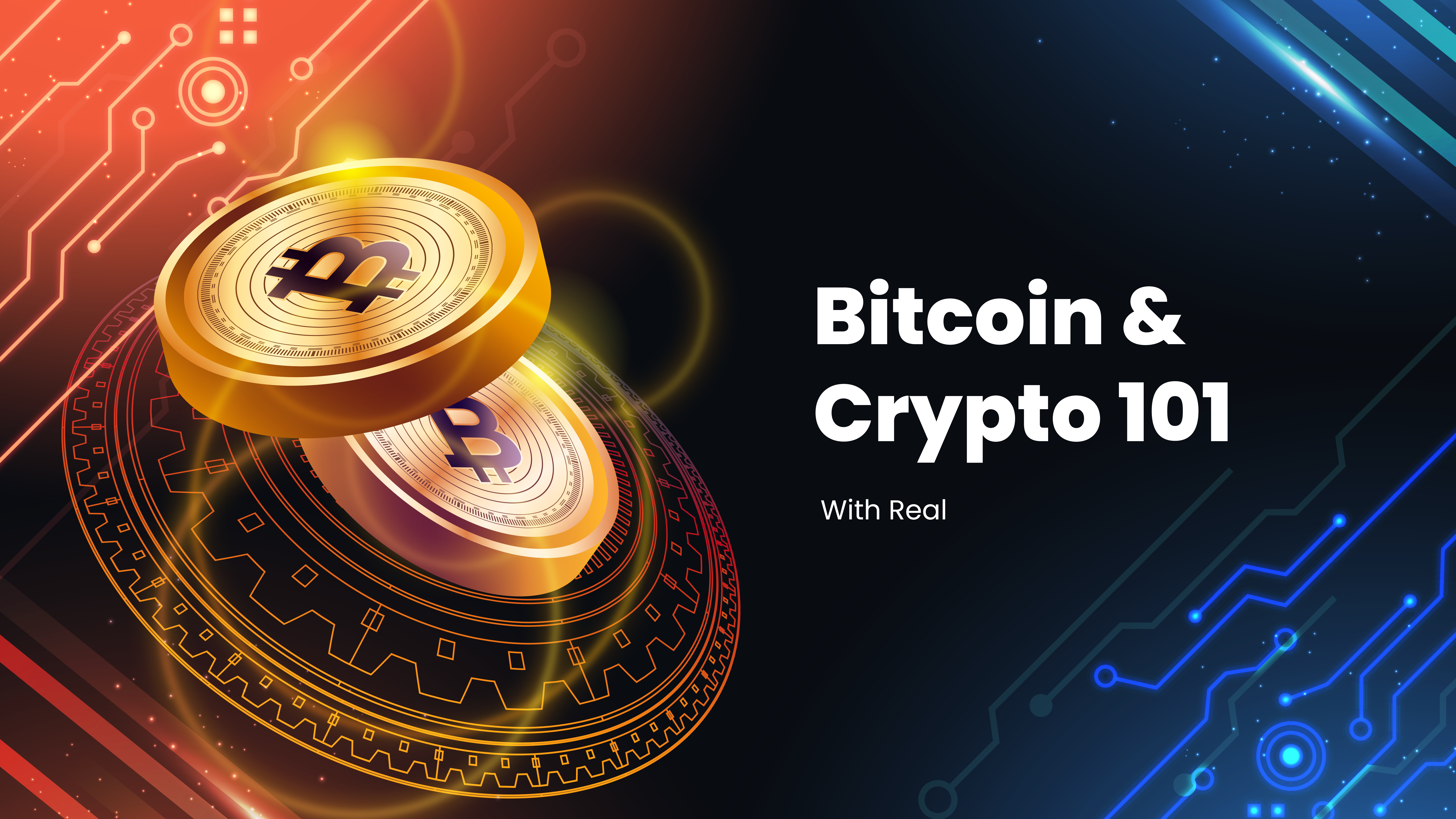Introduction to GameSwift
GameSwift is a pioneering initiative aimed at making Web3 gaming accessible and user-friendly. It offers a modular blockchain network and zkEVM technology to streamline game development while providing players with an immersive experience. GameSwift’s primary goal is to bridge the gap between traditional gamers and the blockchain world.
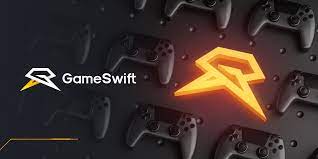
Overview of GameSwift
GameSwift stands as an innovative blockchain-based ecosystem with a clear mission: to transform the landscape of Web3 gaming by dismantling the existing barriers to widespread blockchain adoption in the gaming sphere. Its primary goal is to render blockchain technology more accessible for both developers and players alike.
GameSwift simplifies and streamlines the Web3 gaming experience, erasing the intricacies traditionally associated with blockchain technology. This approach empowers players to delve into and savour blockchain-based games without requiring an in-depth understanding of cryptocurrencies, wallets, or gas fees.
At the heart of GameSwift lies a modular blockchain network, seamlessly incorporating zkEVM (Zero-Knowledge Ethereum Virtual Machine) technology. This modular structure accelerates game development, greatly boosting efficiency for game studios.
One of GameSwift’s standout attributes lies in its unwavering dedication to delivering a seamless user experience. Players can effortlessly log in using their existing social media credentials, including Google, Discord, or Apple IDs. Furthermore, an integrated wallet securely safeguards in-game assets, irrespective of their blockchain origins, effectively rendering blockchain technology “invisible” to users.
GameSwift places a formidable emphasis on security, implementing a shared security model enriched with cutting-edge features such as ZK Shared Security. This proactive security stance alleviates the burden on game developers, sparing them from crafting their security infrastructure and thereby ensuring a safer gaming environment.
To further support the developing world of Web3 gaming, GameSwift operates GameSwift Studio—a subsidiary dedicated to curating and fostering high-quality blockchain games. This studio plays a pivotal role in assisting game creators and developers in overcoming the unique challenges presented by Web3 gaming.
The GameSwift ecosystem revolves around its native token, GSWIFT, which serves a multitude of functions. GSWIFT is instrumental in validating transactions, paying fees, and generating revenue through various in-game mechanisms, such as subscriptions, in-app purchases, NFT sales, and more.

Team Background
GameSwift, established in 2022, is guided by a diverse leadership team comprising professionals with extensive expertise across various domains. The founding members include:
Wojciech Gruszka (CEO & Founder): An accomplished lawyer and advisor experienced in international corporations. He is the founder of Star Terra, a prominent fundraising platform in the Web3 realm.
Tomasz Kowalczyk (CTO): A renowned IT and blockchain expert who has previously contributed to Microsoft and 11-bit studios, known for games like “This War of Mine.”
Katarzyna Dyrcz (CMO): A seasoned marketer with a track record at companies such as G2A.COM, Revolut, and Google, specializing in engaging gaming audiences.
Michal Kuraziel (COO): A distinguished software development leader with a 15-year career marked by successful project deliveries from conceptualization to launch.
Lucas Caley (CBDO): Leveraging his legal background, Lucas oversees product development strategy and partnerships. He previously provided counsel to Web2 game studios.
Maverick Mitkowski (CDO): A product architect and accomplished IT entrepreneur, Maverick co-founded the StarHeroes game and contributes to GameSwift’s visual aspects.
In addition to the founding team, GameSwift boasts a workforce of over 30 Web3-savvy professionals, encompassing managers, developers, designers, and marketers. These individuals bring a wealth of experience gained from working with Fortune 500 companies, crypto startups, and gaming studios. Their collective expertise ensures the successful execution of the company’s strategic initiatives.
Tokenomics
The native token of the GameSwift ecosystem is known as $Swift, with the symbol GSWIFT. GSWIFT tokens serve various functions within the GameSwift ecosystem, including validating and paying transaction fees on the GameSwift Layer 1 blockchain and kEVM roll-ups. Additionally, GSWIFT tokens generate revenue through subscription-based models, in-app purchases, NFT sales, swap/aggregator fees, cash-out fees, battle passes, and premium accounts, ensuring a robust economic model.
Total Supply: 1.4B GSWIFT
Circulating Supply: 45.48M GSWIFT
Market Cap: $2.09M
All-time High: $0.1771 -66.06% (August 08, 2023)
All-time Low: $0.04485 +34.01% (September 28, 2023)
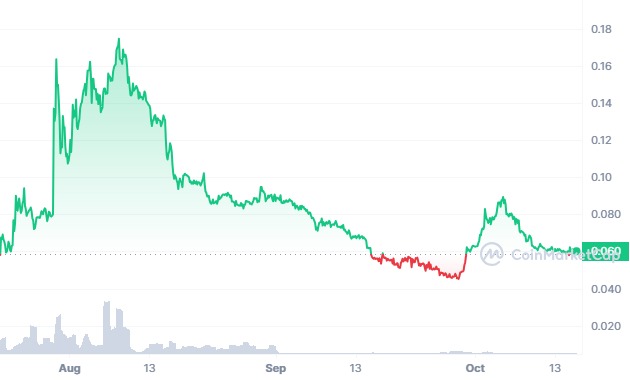
Core Features of GameSwift
GameSwift offers a range of core features that aim to address the challenges and complexities associated with Web3 gaming. Some of the key core features of GameSwift include:
Modular Blockchain Network: GameSwift’s modular blockchain network is at the heart of its ecosystem. This network is designed to make game development faster, more efficient, and scalable. Game developers can build dApps on GameSwift’s gaming-optimized modular chain or create zkEVM (Zero-Knowledge Ethereum Virtual Machine) rollup chains with their own native tokens. This modular approach simplifies the development process and reduces the need for developers to create their security infrastructure.
zkEVM Technology: GameSwift integrates zkEVM technology. This technology enhances scalability, reduces gas costs, and improves the execution speed of smart contracts. Game developers can leverage zkEVM to create efficient and cost-effective games.
User-Friendly Experience: One of GameSwift’s primary goals is to make Web3 gaming accessible to a broader audience. To achieve this, it offers a user-friendly experience. Players can log in to GameSwift using their existing social media accounts (Google, Discord, Apple IDs) without needing to set up complex crypto wallets or deal with gas fees. An integrated wallet securely stores all their in-game assets, regardless of the blockchain they originate from, making blockchain technology “invisible” to users.
Shared Security Model: GameSwift employs a shared security model to enhance the security of games built on its network. This means that game developers do not have to create their security infrastructure from scratch, reducing the risk of vulnerabilities and hacks. Features like ZK Shared Security contribute to the overall security of the ecosystem.
GameSwift Studio: GameSwift operates GameSwift Studio, a subsidiary dedicated to curating high-quality blockchain games. This studio supports game creators and developers, leveraging the team’s experience in well-known games like The Witcher 3: Wild Hunt and Cyberpunk 2077. GameSwift Studio aims to elevate blockchain gaming and enable massive adoption.
GSWIFT Token Utility: The GSWIFT token is at the core of the GameSwift ecosystem. It serves multiple functions, including validating and paying transaction fees on the GameSwift Layer 1 blockchain and kEVM roll-ups. Additionally, GSWIFT tokens generate revenue through subscription-based models, in-app purchases, NFT sales, swap/aggregator fees, cash-out fees, battle passes, and premium accounts. This utility ensures a robust economic model within the ecosystem.
Proof-of-Stake (PoS) Consensus: GameSwift uses a PoS consensus mechanism, which is energy-efficient and well-suited for gaming applications. This consensus model reduces energy consumption and enhances transaction throughput, contributing to the sustainability of the ecosystem.
These core features collectively aim to simplify the Web3 gaming experience for both players and developers, making it more accessible, secure, and efficient. GameSwift seeks to bridge the gap between traditional gaming and blockchain technology, potentially driving greater adoption of decentralized gaming applications.
Roadmap and Future Development
GameSwift strives to make Web3 gaming accessible to traditional gamers by expanding the ecosystem, increasing game adoption, and improving user experiences. Additionally, it serves as a platform for game creators to develop and promote blockchain-based games, facilitating the merge of traditional gaming and blockchain technology.

Potential Risks and Challenges
- Competition: The Web3 gaming industry is highly competitive, with numerous blockchain-based gaming projects vying for attention. GameSwift may face challenges in distinguishing itself and attracting both players and developers.
- User Adoption: While GameSwift aims to simplify the user experience, it still requires players to adopt blockchain technology. Overcoming the inertia of traditional gamers and convincing them to embrace decentralized gaming remains a significant challenge.
- Technical Hurdles: Implementing a modular blockchain network and integrating zkEVM technology is a complex technical endeavor. Ensuring the system’s robustness, security, and scalability will be an ongoing challenge.
Advantages of GameSwift
- User–Friendly Approach: GameSwift excels in providing a user-friendly entry into Web3 gaming. It achieves this by enabling players to log in through their existing social media accounts and incorporating an integrated wallet. These features eliminate the technical hurdles associated with blockchain gaming, making decentralized gaming more accessible to a wider audience.
- Efficient Game Development: GameSwift enhances game development efficiency with its modular blockchain network and integration of zkEVM technology. This leads to quicker development cycles, lower gas costs, and improved scalability, ultimately benefiting game creators.
- Shared Security Model: GameSwift’s shared security model elevates the safety of games built on its network. Game developers can tap into this security infrastructure, mitigating vulnerabilities and reducing the risk of hacks, resulting in a more secure gaming environment.
- Economic Viability: The versatile GSWIFT token within the ecosystem establishes a robust economic model. Developers and players can both reap rewards from multiple revenue streams, including subscriptions, in-app purchases, NFT sales, and more. This encourages active participation and engagement within the GameSwift ecosystem.
- Environmental Concern: GameSwift adopts a PoS consensus mechanism that significantly reduces energy consumption when compared to other methods like proof-of-work (PoW). This environmentally conscious approach aligns with the growing emphasis on sustainability within the blockchain industry.
Conclusion
In summary, GameSwift is a promising ecosystem with the goal of transforming the Web3 gaming industry. With its user-friendly approach, modular blockchain network, and innovative features, it aims to bridge the gap between traditional gamers and blockchain technology. GameSwift’s commitment to accessibility and innovation makes it a significant player in the evolving world of Web3 gaming.
Sources:
https://cdn.gameswift.io/gameswift/documents/gameswift/GameSwift%20-%20Litepaper.pdf?_gl=1*17tq3z9*_ga*MTI1NTkyMTEyNi4xNjk1NjU5NTM0*_ga_86GJDVRX13*MTY5NTY1OTUzNC4xLjAuMTY5NTY1OTUzNC4wLjAuMA..
https://coinmarketcap.com/currencies/gameswift/
https://www.coingecko.com/en/coins/gameswift
